Documentaries sit at the very heart of the ±«Óãtv’s output and continue to be hugely popular with both iPlayer and linear audiences.
We are looking for the next generation of documentary series, boxsets and single films that are relevant to our audience, timely in our changing world and which represent the very best of British storytelling.
Relevant: We want documentaries with purpose, that speak to our modern lives, help make sense of our changing times and therefore resonate with the broadest possible audience.
Quality: We continue to find, nurture and support the very best documentary making talent to create work that wins award for excellence whilst connecting with huge audiences across the UK.
Universal: We want the documentaries commissioned on our slate to reflect the broadest possible spectrum of lived experience from across the UK by giving a voice to people, stories and perspectives that have previously remained unheard.
Brave: We support risk taking with purpose, with films that provoke debate, move hearts and minds and inspire change.
Innovating: We support documentary makers to develop new creative approaches to storytelling, finding new ways to tell new stories that continue to evolve the culture of documentary making.
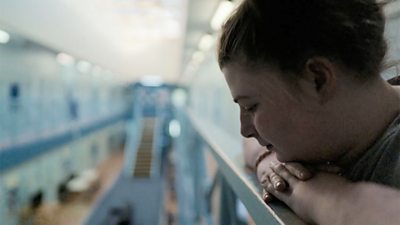
Working with us
We will commission creative, complex and risky programmes and work with you to navigate the unique challenges that each project presents - from the first pitch through to broadcast and beyond. When you work with us you have the might of the entire ±«Óãtv behind you, with support and collaboration from an array of different departments.
We work closely with teams in news, sport, radio, press and social - each bringing huge additional expertise and support. Together they can help to promote our key titles across ±«Óãtv TV, Radio, Sounds, online and beyond. We are also working with an array of external outlets in exciting, creative and far-reaching new ways to enhance and promote our documentary output.
To help elevate your work and to support ambitious storytelling and innovation, we’re also open to partnering with other broadcasters or streamers. We’re excited to be involved in co-productions with PBS, CNN and others, along with ±«Óãtv commissioning teams in the Nations. For example, our highly acclaimed series Once Upon a Time in Northern Ireland was a co-production with PBS and jointly commissioned with our colleagues in ±«Óãtv Northern Ireland. We’re actively seeking new returning series, boxset and single ideas from companies based in the Nations and English regions.
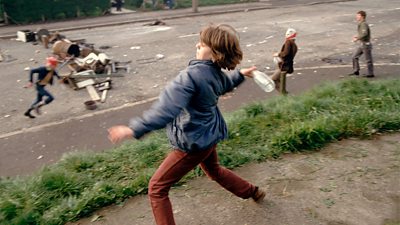
Returnable mainstream series
These are our big, ambitious, British access series, driven by present tense actuality that have broad audience appeal. Crucially, they each have a distinctive tone and a unique approach to storytelling.
We see these as a gold standard in documentary making and they can be a big win for producers as we commission them in volume - between five and 10 episodes in each series run.
Current returnable documentary brands include Parole, Ambulance, Forensics: The Real CSI and Murder 24/7. These contemporary series are each driven by real-world drama and designed to cut through on iPlayer - with accessible, immersive and relevant stories that connect to the broadest possible audience. Through these titles we’re able to enter the real lives and experiences of people across the UK, whilst engaging viewers with relevant and timely subjects such as mental health, the NHS and the human impact of crime, immigration, wealth and the cost of living. We also love how these titles can move around the country for each new series, drawing on and growing local talent throughout the production process.
We’re always looking for ways to renew and refresh these brands with new precincts and approaches, so here are some key things we look for when considering pitches in this space:
- Access and observational filming are key, but they must also have a very distinctive way of telling the story. A clearly articulated approach is as important as the access itself.
- They should have a clear identity and distinctive offer to viewers, whether that’s in the contemporary formatted narrative of Parole, the multiple linked stories of Ambulance the specialist factual science layer of Forensics: The Real CSI, the multi-perspective narratives of Murder 24/7 arced over more than one single episode or the uniquely privileged access to courtrooms of Murder Trial.
- At the more popular end of our slate, if using talent it needs to be in an authentic way - using their expertise. For example, this combined with the documentary sensibilities we love in Stacey Solomon’s Sort Your Life Out means we can witness lives genuinely being changed onscreen.
To broaden our range even further we want to find new ways into a variety of new precincts - so what’s the next precinct beyond blue flashing lights and how can you bring a fresh approach and tone to it?

Boxsets
Limited series, aka boxsets, remain a hugely important part of our iPlayer-led strategy and enable us to tell vital British stories with real scale and purpose. Some of our most successful recent boxsets include The Detectives, Louis Theroux Interviews, the Bafta nominated Freddie Flintoff’s Field of Dreams and the multi-award-winning Once Upon a Time in Northern Ireland.
What we generally mean by ‘boxsets’ are multi-episode narratives that promise viewers powerful storytelling and distinct creative approaches that keep them hooked from episode to episode. They can come in all shapes, sizes, subjects and styles. Across our slate we’re looking for a variety of creative approaches, story types and tones so that we have something to offer everyone who comes to iPlayer. We don’t want identikit boxsets that feel formulaic or like they are replicating a house style. We are really interested in new, bold approaches to storytelling that open up new types of story and enable us to hear from new voices and perspectives. This is a hugely exciting area where we want to continue to experiment and showcase creative ambition.
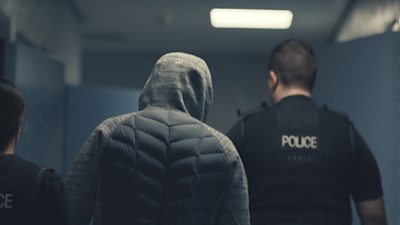
±«Óãtv Three boxsets
Our limited series are produced for broad appeal but we’ve also had success with boxsets targeted at a young audiences for ±«Óãtv Three. These are tailored for the Three audience with shorter durations of 30-45 minutes. They explore a variety of subject areas with a range of approaches but all have a driving narrative at their core. The shows held their audience well across the run with an average retention rate of 84% for the 16-34 audience, which means the audience for the final episode was 84% of the size of episode one.
Body on the Beach: What Happened to Annie?, 4 x 30 mins. This co-commission with ±«Óãtv Scotland follows journalist Hazel Martin as she investigates what happened to Annie Börjesson – a young woman whose body was discovered on a beach in Scotland. The authorities initially labelled the death as suicide, but Hazel uncovers undisclosed evidence and multiple factors that may have caused Annie's death - driving audiences' curiosity and allowing them to decide what really happened to Annie.
Paranormal: The Girl, the Ghost and the Gravestone, 4 x 30 mins. This co-commission with ±«Óãtv Wales follows Radio 1 presenter Sian Eleri as she investigates the events that took place at a remote farmhouse in North Wales - widely considered to be the most haunted house in Britain. Remembering the story from her childhood, Sian begins her journey as a sceptic, but as she draws on exclusive access to a huge archive of video and audio material and to those at the heart of the story, she becomes totally immersed in the story of what happened. Then, in a series of bizarre twists and turns, she’s left questioning everything she thought she knew.
Gaia: A Death on Dancing Ledge, 3 x 45mins. Zara McDermott explores the mysterious disappearance of 19-year-old Gaia Pope-Sutherland who went missing from Dancing Ledge in Dorset and whose body was only discovered 11 days later. Zara’s profile brought a large young audience to the story as she explored the impact on Gaia’s family and their search for justice – asking whether enough was done to protect Gaia and other young women and girls.
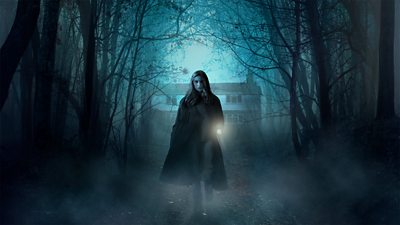
High impact single films
We work carefully over time to tell important, landmark and sensitive stories that have huge public interest, such as our single film Sarah Everard: The Search for Justice.
Sarah's devastating murder sent shock waves across the country and ignited an urgent national conversation about police failings and violence against women and girls. This important and timely film reached nearly 4 million people in its first seven days, providing further insight and increased focus on women’s safety, abuse of power by police and those in other positions of authority.
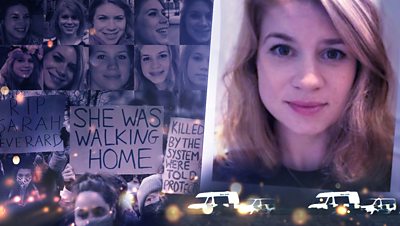
Our slate of single films reflects our audience’s appetite for big, complicated, important stories and our recent successes demonstrate what a massive impact these films can make on the ±«Óãtv. For example, The Real Mo Farah attracted an average audience of 5.8 million across linear and iPlayer, and was the ±«Óãtv’s biggest iPlayer audience for a single documentary in 2022. This film set a new benchmark for what single films can do for audiences and we have real ambition in this space.
We’re looking for single stories that feel timely, important and which help us to understand the extraordinary times in which we’re living. For example, the forthcoming follows the experiences of young British volunteers that head out to Ukraine and risk their lives to rescue civilians who are trapped in a warzone. The film uses a distinctive new approach to documentary storytelling to unlock one of the most important stories of our time.
Sometimes our experience in the present can also offer fresh perspectives and a deeper insights into our past, as with Miners’ Strike: A Frontline Story, which examined the impact of Britain’s longest running industrial dispute. So, we’re interested in both present day stories or anniversary pieces if they still resonate with contemporary concerns and shine a light on our world today.
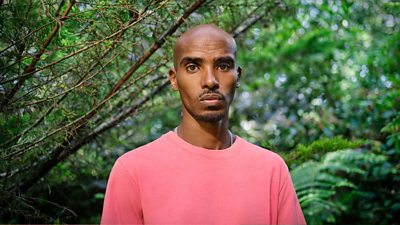
±«Óãtv New Directors Initiative
Our new director’s initiative nurtures and champions up and coming talent to make their first film. Much like our other singles, these films have real range in subject matter, storytelling and tackle the same subjects as established film makers.
Scars: Surviving a Stabbing explores why knife crime in the UK is at the highest level ever. Eight years ago film-maker Aodh Breathnach was stabbed, but in the aftermath he never wanted to talk about his experience. In this deeply personal film he sets out to meet other men who have been stabbed and even considers meeting his perpetrator. Drawing on his own story he’s able to capture revealing and emotional conversions rarely heard from men on television. His film highlights the lives that are tragically lost and explores the untold stories of the thousands of people who are stabbed and survive.
Danielle Spears’ film Bad Love: Why Did Fri Kill Kyle? tells the story of 21-year-old Fri Martin who was convicted for murdering Kyle Farrell, the father of her children. Fri was later granted an appeal claiming she was a victim of domestic violence. With privileged access to both Fri and Kyle’s family and friends during the run up to the trial, the film charts the story from multi-perspectives. It tackles important questions about domestic abuse, and asks whether Fri could be a victim as well as a killer?
Marian Mohamed’s Defending Digga D is a present tense film following the rapper at a pivotal point in his career as he was released from prison and set to return to the music industry, but with a Criminal Behaviour Order that controlled his creative output. It brought new audiences to iPlayer and won a breakthrough Bafta for Marian.
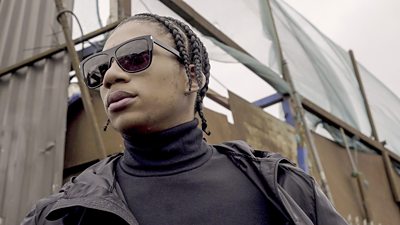
Unscripted on iPlayer
Read about how we commission unscripted content in an iPlayer first-world, along with advice and further resources to maximise the impact of your programme on the platform.
-

Commissioning for iPlayer: find out more
Strategy and advice for maximising impact on the platform
Documentary commissioners
-
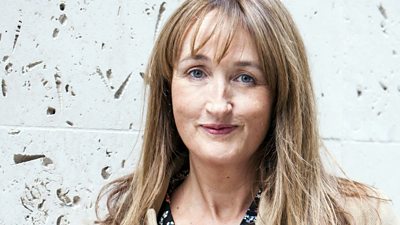
Clare Sillery
Head of Commissioning, Documentaries -

Emma Loach
Commissioning Editor -
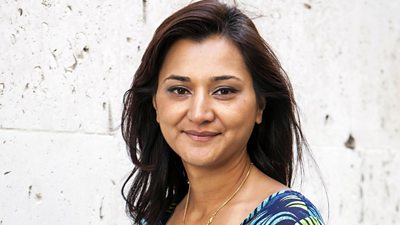
Beejal Patel
Commissioning Editor -

Carl Callam
Commissioning Editor -

Aisling O'Connor
Commissioning Editor -
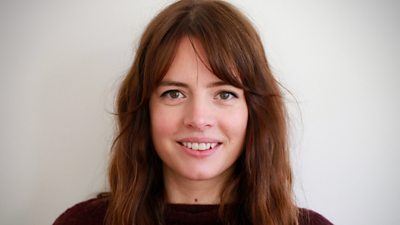
Anna Dickeson
Commissioning Editor -

Fran Baker
Commissioning Editor -
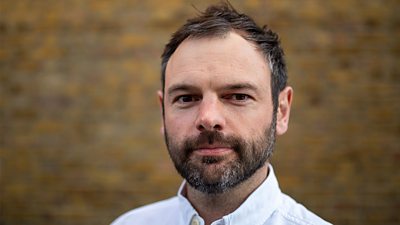
Tom Pullen
Commissioning Editor
Aisling O’Connor sits within the documentaries team and also works with the other unscripted genres, with a special focus on indies in the English regions.
Further advice and support
-
Named business leads
Business advice per genre for companies with ideas in play -
Indies outside London
Advice and commissioning leads for each Nation and region -
Small or new indies
Our tailored support packages and advice -
Diverse-led indies
Our investment, commitments and contacts
How to send us your ideas
-
Our ideas submission system for established companies
-
Accessing PiCoS
Eligibility criteria, how to guides and contacts -
How we commission
Our processes, commitments and priorities -
Not an indie?
Grow your skills and career in television
Production resources
-
Diversity on and off-screen
Requirements, funds and contacts -
Sustainable productions
Requirements, resources and contacts -
Production and delivery website
End to end programme delivery and contacts
Explore the site
-
Briefs and contacts
Commissioners and ideas -
Supporting indies
How we commission and work -
Skills and training
Industry training and skills development
